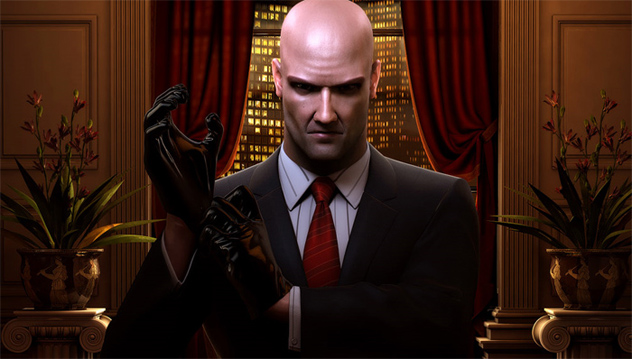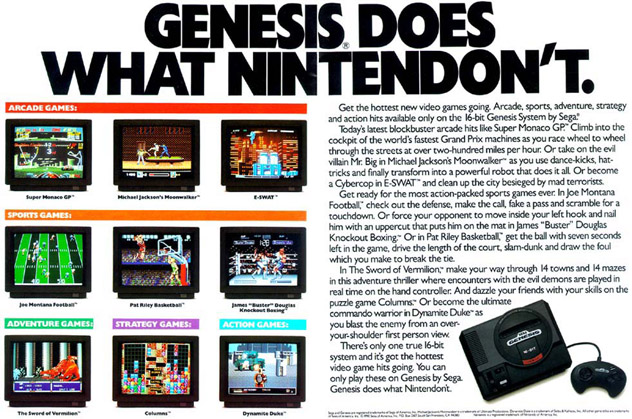 History
History  History
History  Miscellaneous
Miscellaneous 10 Ancient Etiquette Rules You Never Knew Existed
 Our World
Our World Planet Earth’s 10 Most Hardcore Natural Creations
 Movies and TV
Movies and TV 10 Times Twin Movies Competed with Each Other
 The Arts
The Arts 10 Masterpieces Plucked from the Artist’s Subconscious
 Crime
Crime 10 Fascinating Facts about Rikers Island
 Pop Culture
Pop Culture 10 Things You Might Not Know about Dracula
 Weird Stuff
Weird Stuff 10 Everyday Activities That Were Once Considered Illegal
 History
History Ten of History’s Hidden Secrets: Stories 99% Don’t Know About
 Movies and TV
Movies and TV 10 Actors Who Infamously Stormed Off Set While Filming
 History
History 10 Influencers Who Lived Centuries before Social Media
 Miscellaneous
Miscellaneous 10 Ancient Etiquette Rules You Never Knew Existed
 Our World
Our World Planet Earth’s 10 Most Hardcore Natural Creations
Who's Behind Listverse?

Jamie Frater
Head Editor
Jamie founded Listverse due to an insatiable desire to share fascinating, obscure, and bizarre facts. He has been a guest speaker on numerous national radio and television stations and is a five time published author.
More About Us Movies and TV
Movies and TV 10 Times Twin Movies Competed with Each Other
 The Arts
The Arts 10 Masterpieces Plucked from the Artist’s Subconscious
 Crime
Crime 10 Fascinating Facts about Rikers Island
 Pop Culture
Pop Culture 10 Things You Might Not Know about Dracula
 Weird Stuff
Weird Stuff 10 Everyday Activities That Were Once Considered Illegal
 History
History Ten of History’s Hidden Secrets: Stories 99% Don’t Know About
 Movies and TV
Movies and TV 10 Actors Who Infamously Stormed Off Set While Filming
10 Ridiculous Video Game Marketing Campaigns
The rise of video games has been so meteoric in recent years that it has gone from being perceived as the favored pursuit of geeks and children to becoming a multibillion-dollar industry. In fact, the games market is so enormous that overall revenue dwarfs that of other entertainment media. Marketing campaigns for upcoming titles have evolved alongside the medium but, every now and then, an idea that is clearly too stupid to work gets approved.
10Name Your Baby Turok for Turok: Evolution

Many a company has made mistakes when it comes to advertising their latest game, but there is only one company that made ridiculous advertising campaigns an art form. Those of you with long memories may remember Acclaim as being a company that generally made pretty solid games without ever really becoming particularly massive in the industry. What you may not remember is that, toward the end of the company’s existence, their advertising campaigns not only crossed the line of insanity, but dashed past it with reckless abandon.
The first of the three entries for Acclaim on this list is perhaps the least ridiculous, which says more about the issues surrounding the other campaigns than it does about the quality of this one. In short, back in 2002, the company was looking to re-launch the popular Turok series. The games had experienced a lot of success on the Nintendo 64, but the emergence of a new generation of consoles left the company searching for a way to bring it to a new audience.
So how would Acclaim make sure that gamers would get excited about the upcoming Turok: Evolution? Simple: They offered $10,000 to anybody crazy enough to name their newborn child “Turok.” Quite how this was intended to convince skeptical gamers of the quality of the title is unknown and, needless to say, the game didn’t sell particularly well. It isn’t known if anybody actually ended up claiming the prize, but if there is a child out there named Turok, you can bet that they spend their life counting the days until they are old enough to get a name change.
9Resident Evil: Outbreak Goes Viral

Back in 2003–2004, game developer Capcom was making a pretty big move with their Resident Evil series. Prior to the monster success of Resident Evil 4, the company had decided that the way forward for the series was to get people playing online, cooperating with friends to defeat the game.
The game itself carried a decent idea, although one that was executed far better by the likes of Left 4 Dead only a few short years later. It wasn’t traditional Resident Evil, however, but rather an offshoot of the popular series. And so a marketing campaign to raise awareness was needed.
Capcom decided to work with an agency to create a website that would allow users to enter the mobile phone number of a friend, causing the site to send out a message telling them that they had contracted the T-Virus. The T-Virus, for those not in the know, is the virus that causes the zombie outbreak that is the center of the game. The text even came with a link to a website offering prizes to a few lucky people.
You may already have figured out what went wrong here. In short, the website running the campaign allowed users to enter absolutely any mobile phone number, which in turn meant that tons of people ended up getting unsolicited text messages telling them that they had been infected by the T-Virus. Those familiar with the game simply smiled and waved it off. Those not ended up heading to the support desks at antivirus companies asking how to deal with the “threat.” Needless to say, the campaign was pulled in short order.
8PSP Sells Through Racism

Imagine for a moment that you are Sony. You’ve climbed to the top of the mountain in the console world thanks to the enormous successes that were the PS1 and PS2, and now you are looking to tackle the handheld market. You have developed a console that stands toe-to-toe with Nintendo’s DS brand, so now all that’s left is to break the company’s stranglehold on the handheld market. How do you do it?
If you answered “with implied racism,” then congratulations—a member of Sony’s marketing team is already on their way to recruit you.
As many familiar with the handheld gaming market will be able to tell you, once a console has been released, the market is flooded with updates and color changes in an effort to pump as much money out of the consumer as possible. That is surely what Sony had in mind when they released a ceramic-white PSP as a counterpoint to the standard black.
Not a bad idea. After all, variety is the spice of life. The problem came when the company decided that it would be a good idea to create a billboard poster in Holland that appeared to show a white person in a clear position of power over a black person, with plenty of the unfortunate implications that you would expect from such an ad. Needless to say, people were outraged and, despite Sony pulling the billboard in short order, the PSP never did quite manage to break Nintendo’s dominance of the market.
7Shadow Man 2‘s Deadvertising Campaign

Before there was Turok’s baby-naming campaign, there was the Shadow Man 2 “advertise on a grave” campaign.
The original Shadow Man was a fairly decent third-person adventure that never really set the world on fire. The sequel was more of the same, only with a “two” tacked on the end. Clearly, something needed to be done to build up some hype for the game. Given that the general concept of the game revolved around death and the afterlife, Acclaim decided to try to pay people to put ads on the gravestones of their recently deceased loved ones. They even coined the term “deadvertising” to describe the campaign.
They say that controversy sells, but in this case, all that happened was a lot of outrage followed by yet another sub-standard video game falling by the wayside. As for the advertising campaign, it was apparently all a big April Fool’s joke. Even if it was announced in mid-March.
6No Interest In The Xbox 360

It could be argued that Microsoft bungled a number of aspects of the Xbox One launch, be it the banning of pre-owned games that was alleviated as soon as Sony revealed the PS4 would not implement the same policy, or the original need for the console to always be online, which neglected to take into consideration those living in areas where Internet connectivity wasn’t exactly top-notch.
However, it wasn’t just the domestic launch they had problems with. The company didn’t do much better internationally, particularly in India, where the console was launched a full 10 months after it had appeared in the US and Europe. This meant that the company needed to find a way to continue drumming up interest in its Xbox 360 model in the country, despite the fact that most of the rest of the world was already moving on to the next big thing. How did Microsoft go about it? By offering zero percent interest when purchasing the console in installments.
It’s not a bad idea by any means. What is a bad idea is running an advertisement claiming that your interest in an Xbox could be zero after reading it. This is truly a case of a decent idea being utterly ruined by terrible execution.
5Assassinate Your Friends For Hitman

When Square Enix took over from Eidos as the publisher of the Hitman series back in 2009, they clearly brought some very interesting ideas to the table. Outside of the game starting to take a slightly more action-oriented approach, the publisher also struck upon the idea of using social media to market the game to the masses.
An app was developed that would allow users to put out hits on their friends. It was a touch disturbing, but at least it was in keeping with the theme of the game. The problem came in the reasons a player could use to put out the hit. The app came preloaded with a bunch of reasons you could want one of your friends dead, including the size of their breasts and the color of their hair.
Oddly enough, there aren’t many people who think that an app promoting online bullying and the humiliation of their friends is a particularly good idea, and it was pulled within a couple of weeks of its release, capping a pretty poor year for Square Enix.
4SEGA’s Blast Processing

The 16-bit wars were among the most hotly contested in gaming history. SEGA’s upstart Genesis was putting a real dent into the market share enjoyed by Nintendo following the massive success of the NES. Before the SNES was introduced, SEGA made a killing by showing how their console did what “Nintendon’t.”
Those adverts also made sure to point out that the Genesis featured “Blast Processing,” which apparently made it far superior to the competition. It was something that Nintendo could never offer and, best of all, it wasn’t even a thing.
Blast Processing has now become synonymous with the idea of using marketing buzzwords in an effort to get one over on the competition. SEGA ended up losing the console war to Nintendo, but their aggressive marketing campaign did manage to help them gain a decent foothold in the US market. It may have been a ridiculous and flagrant lie, but in this case you can’t deny that it had some effect.
3Breasts For Evony

Sex sells. It is a concept that has existed since time immemorial and is as true today as it always has been. You need only look at the very existence of booth babes at the famous E3 show to see that games developers have been looking to use sex to rope players in for years.
It’s a concept that Evony, the makers of an Adobe Flash game, took all too seriously. The company created an advertising campaign back in 2009 that used text about the game on a background of scantily clad women who had absolutely nothing to do with the game. Eventually, the game went from being a harmless rip-off of the Civilization series into one of the most hated games in existence.
As for the team behind the game, they eventually became embroiled in a legal battle with a UK blogger following accusations that they had links to Chinese gold farming enterprises, among other shady practices. The Evony team responded furiously at first, but eventually they withdrew their libel suit.
2Xbox—Life Is Too Short
Now that they are firmly entrenched in the hardware market, it is hard to remember the time when Microsoft was actually the new upstart company in the world of video game consoles. That’s the position they were in during the early 2000s, when they were looking for a way to make an impact in a market that already looked set to be dominated by Sony’s PS2.
To market the Xbox in the UK, the company decided to announce the launch of their brand new console with the above advertisement showing a baby getting shot out of a woman’s uterus, smashing through a window, and rapidly aging before eventually slamming into its own grave.
Admittedly, it’s a pretty cool ad, but that didn’t stop the British public from lodging a whole bunch of complaints about it. It wasn’t long before the advertisement was banned. Happily for Microsoft, the Xbox brand still managed to stay strong throughout the whole issue.
1Speeding For Burnout 2

We end this list as we began it—by taking a look at yet another ridiculous advertising campaign that came from the insane minds of the marketing folk at Acclaim.
While the other entries on this list are ridiculous, Acclaim’s offer to pay the fine for anybody caught speeding in the UK during the game’s launch day was downright dangerous. The company went from poor taste to criminal negligence in the space of a press release.
Of course, people reacted as you would expect them to, and Burnout 2 only sold moderately well, based almost entirely on the fact that it was a pretty good game and didn’t need such ridiculous publicity stunts behind it.
Acclaim eventually went out of business and handled the bankruptcy about as well as they handled their marketing. The true tragedy for gamers was that the company actually made some fine games during its run and, regardless of how ridiculous their stunts were, they could always be counted on to be entertaining.
Lee Price is a writer for 411mania.com and Starburst Magazine, which is published in the UK. He is currently working as a freelance writer. He hopes to one day fund his addiction to video games by writing about video games.








